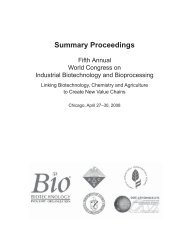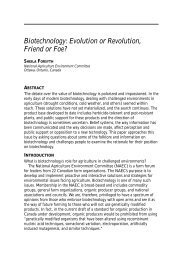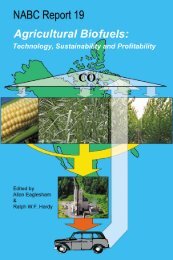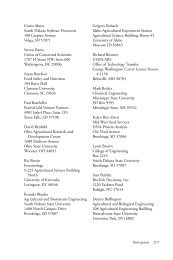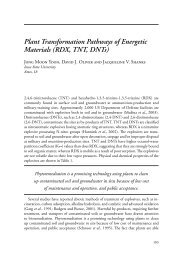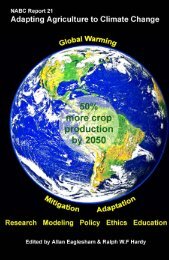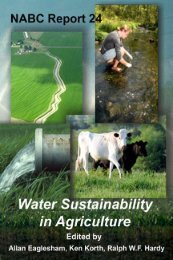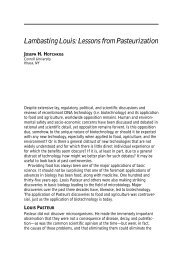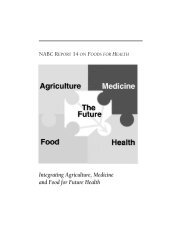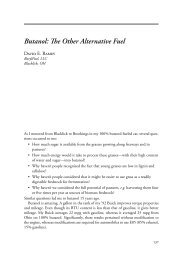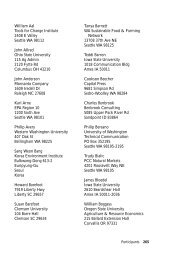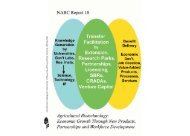Food Security - National Agricultural Biotechnology Council ...
Food Security - National Agricultural Biotechnology Council ...
Food Security - National Agricultural Biotechnology Council ...
- No tags were found...
Create successful ePaper yourself
Turn your PDF publications into a flip-book with our unique Google optimized e-Paper software.
gies. <strong>Agricultural</strong> sustainability refers to a system that can meet global requirements forfood, feed, fiber and fuel indefinitely, with beneficial economic and environmental effectsin areas such as water and fossil-fuel usage, biodiversity preservation, land stewardship,carbon sequestration and more.Defined in that fashion, sustainability is, clearly, fundamental to food security. Simplyput, intensive farming, done sustainably, improves efficiency of use of resources.Consider, for example, the impact of crop losses. On a global basis, cereal-croplosses—to weeds, pests and disease—are estimated to average about 40% of the attainableyield (Oerke and Dehne, 1997). Given the food-production challenges weface to achieve global food security, how can that be tolerated? Said another way,natural resources—the soil and water utilized by the unattained yield—would bemore efficiently used if the crop losses are mitigated by smart use of chemical andbiological inputs, improved tillage practices and other crop-protection technologiesand techniques associated with intensive farming.The resource conservation that results from intensive farming—done sustainably—isnot theoretical. A Stanford University study concluded that a land mass larger thanRussia has been saved from cultivation because farmers have used modern technologyto grow more on their farms in the last 50 years (Burney et al., 2010). Russia coversmore than 17 million square kilometers. That means an area more than twice the sizeof the continental United States has not been put into cultivation to support globalfood, feed, fiber and fuel needs even as the population has grown.In Brazil, the rate of deforestation plunged to a historic low in 2009 even as agriculturalproductivity increased there at a rate faster than that of any other country inthe world (Anonymous, 2010). By contrast, European restrictions on the use of certaininputs—genetically engineered crops, among others—mean that feeding Europe consumesthe agricultural production of a non-European land mass the size of Germany(von Witzke and Noleppa, 2011).Brazil’s example underscores a profoundly important point: the absolute necessityof growth in agricultural productivity and the absolute necessity of conservation ofscarce resources and the preservation of our environment are not in conflict. In fact,they can and should be in harmony.Benchmarks Beyond BushelsWhat can the developed world do to debunk the perceived conflict between productivityand sustainability? What can the developed world do to propagate a sustainable formof intensive agriculture that will help remedy our global food-security challenge, createeconomic opportunity and improve social stability? Of myriad opportunities, I will discussthree contributions the developed world can make to putting us on a sustainable path toglobal food security. Those contributions are in three categories:• Incorporation of outcomes-based sustainability measures into our mindset;• Investment in the development and dissemination of technologies that enableimprovements in these sustainability outcomes, including productivity; and60 <strong>Food</strong> <strong>Security</strong>: The Intersection of Sustainability, Safety and Defense



